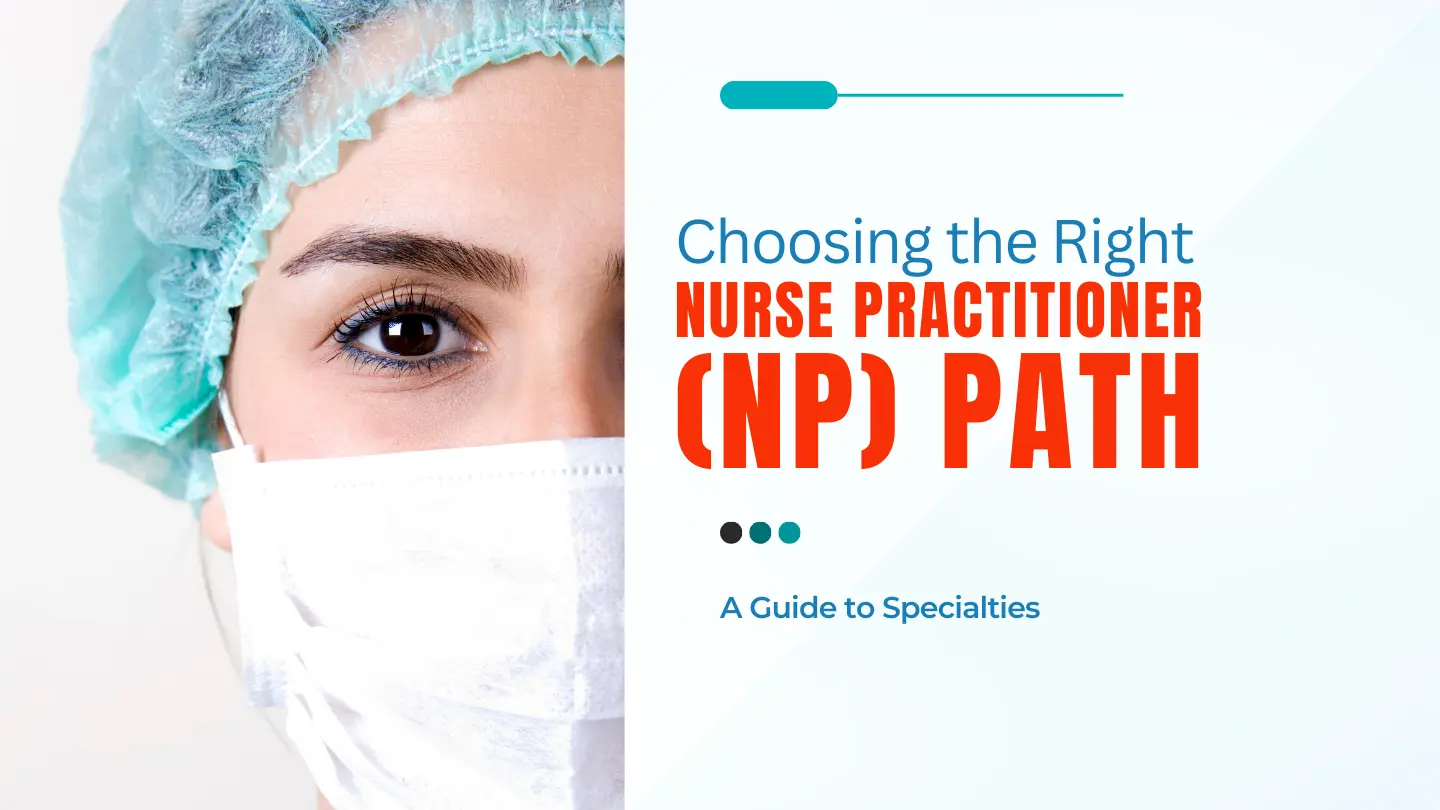Choosing the Right Nurse Practitioner (NP) Path: A Guide to Specialties

Deciding on an NP specialty is a pivotal moment in any nurse’s career. With the healthcare landscape constantly evolving, the scope of NP specialties continues to broaden, offering a myriad of pathways for those keen on advancing their nursing practice. Whether your passion leans towards working with children, and adults, or delving into the complexities of psychiatric care, understanding the nuances between specializations can significantly influence your career satisfaction and growth. Below, we delve into the factors to consider, the current industry trends, and how to align your career aspirations with the appropriate NP trajectory. Keep reading to navigate the multifaceted world of NP specialties with greater confidence.
People Also Read?
Unveiling the Diversity of NP Specializations
The field of nursing is as diverse as it is dynamic, with various NP specializations catering to distinct populations and healthcare needs. At the heart of this diversity is the desire to offer specialized care that aligns with each practitioner’s strengths and interests. From pediatrics to gerontology, and from acute care to family health, the choice of specialization sets the foundation for the type of patients you’ll encounter and the care you’ll provide.
For instance, Pediatric NPs dedicate their practice to the health and well-being of children from infancy through adolescence. They are adept at navigating the unique healthcare needs of younger patients, including growth, development, and various pediatric conditions. On the other end of the spectrum, Adult-Gerontology Nurse Practitioner (AGNP) focuses on the aging population, addressing complex medical issues related to the elderly. This specialization can be pursued through flexible online AGNP programs, which have made advanced nursing education more accessible than ever. This availability has opened doors for many nursing professionals to pursue their specialties without having to significantly disrupt their working lives.
People Also Read?
Family Nurse Practitioner (FNP) Versus AGNP: A Close Look
Two of the most popular NP specialties are the FNP and the AGNP. FNPs offer a broad scope of practice that allows them to provide healthcare across the lifespan—from newborns to the elderly. This field is particularly fitting for those who enjoy variety and the continuity of caring for patients throughout different stages of life.
The AGNP, on the other hand, has a narrower focus, dedicated to the care of adults, with an emphasis on aging individuals. AGNPs are equipped to manage, diagnose, and treat medical issues specific to the adult and elderly population. This specialty appeals to those who are passionate about improving the quality of life for adults as they navigate the complexities associated with aging.
Emerging Trends in NP Specialties and Job Outlook
The healthcare landscape is continually adapting, and with it, the job outlook for NPs is ever-changing. An increasing emphasis on preventive care and the management of chronic diseases has heightened the need for specialized NPs. Thanks to their advanced training, NPs often serve in roles similar to physicians, particularly in underserved areas where they may be the primary healthcare providers.
Technological advancements are another area impacting NP specialties. Telemedicine, for example, has become increasingly prevalent, expanding access to healthcare and creating new opportunities for NPs to deliver care remotely. This evolution has led to a growing demand for NPs who are not only clinically skilled but also adept at using healthcare technologies.
Balancing Passion and Practicality in Your NP Career Path Choices
The journey towards an NP specialty should start with introspection, where personal interests and values are weighed against the pragmatic aspects of the profession. Balancing these considerations is not a mere act of compromise but rather a strategic approach to a fulfilling and sustainable career. Engaging with mentors, attending professional workshops, and gaining exposure to various specialties through clinical experiences are ways to inform this balance.
Ultimately, the right NP specialty should resonate with who you are as a professional and individual. It should be a natural extension of your current skill set and personal aspirations—a harmonious mix that speaks both to your heart and your intellectual curiosity.
Overall, the decision to pursue a particular NP specialty is a complex interplay of personal interests, market trends, and practicalities. It’s important to thoroughly research and reflect on how a specialty aligns with your goals and lifestyle. Whether you choose to specialize in family care, adult gerontology, or another field, the key is to commit to continuous learning and compassionate care. Your dedication to advancing your practice will not only shape your career but also deeply impact the lives of those you serve.


